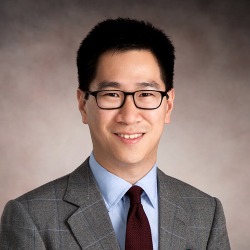American Beethoven Society Research Award
The American Beethoven Society invites nominations for its annual award for scholarly research.
Each year the society awards a $1000 prize to an early-career scholar for outstanding work published in the previous calendar year. Work relating to Beethoven should form a significant component of the publication, but it need not be the exclusive or even primary focus. Articles, books, and scholarly editions are all eligible, and we define “early-career” as no more than twelve years beyond the completion of a graduate or postgraduate degree. The published work must be in English.
The selection committee will consist of the members of the editorial board of the Beethoven Journal, the scholarly publication of the Ira F. Brilliant Center for Beethoven Studies and American Beethoven Society.
We invite nominations for work published in 2025. The closing date for nominations is February 2, 2026, and the prize will be awarded in June 2026. Self-nominations are welcome.
Please submit nominations by email to beethovencenter@sjsu.edu. Nominations should include a digital copy of the nominated publication and a brief explanation of the nominee’s eligibility as an early-career scholar.
Past Winners
2025
 Nicholas Chong won for his book The Catholic Beethoven (Oxford University Press, 2024).
This book offers new perspectives on the role of German Catholicism in Beethoven’s
life and art. Contrary to traditional accounts of Beethoven as generally opposed to
dogmatic and traditional aspects of organized religion, Chong’s book argues that Beethoven’s
religious outlook was shaped by ideas associated with the German Catholic Enlightenment
in ways that profoundly influenced his religious music. The book combines rigorous
historical contextualization with detailed musical and textual analysis, and truly
shifts our understanding of Beethoven’s religious convictions, running against the
grain of much Beethoven reception in scholarship and the popular imagination. Nicholas
Chong is Assistant Professor of Musicology at Rutgers University.
Nicholas Chong won for his book The Catholic Beethoven (Oxford University Press, 2024).
This book offers new perspectives on the role of German Catholicism in Beethoven’s
life and art. Contrary to traditional accounts of Beethoven as generally opposed to
dogmatic and traditional aspects of organized religion, Chong’s book argues that Beethoven’s
religious outlook was shaped by ideas associated with the German Catholic Enlightenment
in ways that profoundly influenced his religious music. The book combines rigorous
historical contextualization with detailed musical and textual analysis, and truly
shifts our understanding of Beethoven’s religious convictions, running against the
grain of much Beethoven reception in scholarship and the popular imagination. Nicholas
Chong is Assistant Professor of Musicology at Rutgers University.
2024
 Matthew Pilcher won for his essay “Beethoven’s Erste Liebe, Himmelslust, WoO 92: Sources,
Languages, Text-Setting,” from Manchester Beethoven Studies, ed. Barry Cooper and
Matthew Pilcher (Manchester, 2023). This is a thorough and perceptive study on an
often-neglected part of Beethoven’s compositional output that presents new material
and new conclusions with clear significance to Beethoven scholarship. From its rigorous
examination of source material to its contemplation of Erste Liebe in Beethoven’s
compositional development, Pilcher’s essay invites us to devote more serious attention
to Beethoven’swork as a vocal composer and to his early works more generally.
Matthew Pilcher won for his essay “Beethoven’s Erste Liebe, Himmelslust, WoO 92: Sources,
Languages, Text-Setting,” from Manchester Beethoven Studies, ed. Barry Cooper and
Matthew Pilcher (Manchester, 2023). This is a thorough and perceptive study on an
often-neglected part of Beethoven’s compositional output that presents new material
and new conclusions with clear significance to Beethoven scholarship. From its rigorous
examination of source material to its contemplation of Erste Liebe in Beethoven’s
compositional development, Pilcher’s essay invites us to devote more serious attention
to Beethoven’swork as a vocal composer and to his early works more generally.